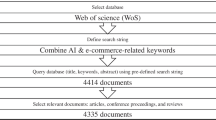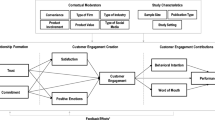Abstract
Using a psychotechnological perspective, this study discusses the current model of information ranking by search engines, based on quantitative Web Popularity (WP), which binds users to a cognitive adaptation to the rank-system restrictions. This phenomenon gives rise to a “rich-get-richer” effect on the Web. This paper claims that such an effect could be limited or reversed by the introduction of quality factors in ranking, and addresses the case of accessibility as a fundamental such factor. A study is reported which, through introducing an accessibility factor in a well-known popularity ranking algorithm, demonstrates that this transformation allows a qualitative rearrangement, without modifying or weighing on the properties of the rank. The overall approach is grounded on two development factors: the analysis of accessibility through specific tools and the employment of this analysis within all components used to build up the ranking. The results show that it is important to reconsider WP as including not only on the number of inbound and outbound links of a website, but also on its level of accessibility for all users, and on users’ judgment of the website use as efficient, effective, and satisfactory.
Similar content being viewed by others
References
Bruner, J.S.: The Process of Education: A Landmark in Educational Theory. Harvard University Press, Cambridge (1977)
Cho, J., Roy, S.: Impact of search engines on page popularity. In: International World Wide Web Conference, New York (2004)
Cho, J., Roy, S.: Adams RE (2005) page quality: In Search of an Unbiased Web Ranking. SIGMOD, Baltimore, pp. 551–562
Fortunato, S., Flamini, A., Menczer, F., Vespignani, A.: Topical interests and the mitigation of search engine bias. PNAS 103, 12684–12689 (2006)
Brin, S., Page, L.: The anatomy of a large-scale hypertextual web search engine. Comput. Netw. 30, 107–117 (1998)
Pandey, S., Roy, S., Olston, C., Cho, J., Chakrabarti, S.: Shuffling a stacked deck: the case for partially randomized ranking of search engine results. In: VLDB Conference. Trondheim, Norway, pp. 781–792 (2005)
Nielsen, J., Loranger, H.: Prioritizing web usability. New Riders, Indianapolis (2006)
Page, L., Brin, S., Motwani, R., Winograd, T.: The PageRank citation ranking: bringing order to the web. Available via Standford Digital library technologies. http://dbpubs.stanford.edu/pub/1999-66. Accessed 21 March 2008 (1999)
Garfield, E.: Citation indexes for science: a new dimension in documentation through association of ideas. Science 122, 108–111 (1955)
Garfield, E. (1961) Science citation index. Science Citation Index 1: v–xvi
Merton, R.K.: The Matthew effect in science. Science 159, 56–63 (1968)
Merton, R.K.: The Matthew effect in science, II: cumulative advantage and the symbolism of intellectual property. ISIS 79, 606–623 (1988)
Berners-Lee, T., Fischetti, M.: Weaving the Web: Origins and Future of the World Wide Web. Orion Business, London (1999)
Krashakov, S.A., Teslyuk, A.B., Shchur, L.N.: On the universality of rank distributions of website popularity. Comput. Netw. 50, 1769–1780 (2006)
Nie, Z., Zhang, Y., Wen, J., Ma, W.: ObjectLevel ranking: bringing order to web objects. In: International World Wide Web Conference Committee (IW3C2). ACM, Japan, pp. 567–574 (2005)
Yen, B.P.C.: The design and evaluation of accessibility on web navigation. Decision Support Systems 2219–2235 (2007)
Signore, O.: A comprehensive model for web sites quality. In: Seventh IEEE International Symposium on Web Site Evolution (WSE’05). Budapest, Hungary, IEEE computer society, pp. 30–36 (2005)
ISO/IEC FDIS 9126-1 (2000) Software engineering—product quality—Part 1: Quality model. International Standards Organization, Geneva, Switzerland
Zeng, X., Parmanto, B.: Evaluation of web accessibility of consumer health information websites. In: AMIA 2003 Symposium Proceedings. Washington, DC (2003)
Federici, S., Micangeli, A., Ruspantini, I., Borgianni, S., Pasqualotto, E., Olivetti Belardinelli, M.: Checking an integrated model of web accessibility and usability evaluation for disabled people. Disabil. Rehabil. 27, 781–790 (2005)
Borsci, S., Federici, S., Mele, M.L., Stamerra, G.: Global rank: improving a qualitative and inclusive level of web accessibility. In: Centre for Disability Research. Conference Proceedings. Lancaster University, Lancaster, p. 9 (2008)
Author information
Authors and Affiliations
Corresponding author
Rights and permissions
About this article
Cite this article
Federici, S., Borsci, S., Mele, M.L. et al. Web popularity: an illusory perception of a qualitative order in information. Univ Access Inf Soc 9, 375–386 (2010). https://doi.org/10.1007/s10209-009-0179-7
Published:
Issue Date:
DOI: https://doi.org/10.1007/s10209-009-0179-7




